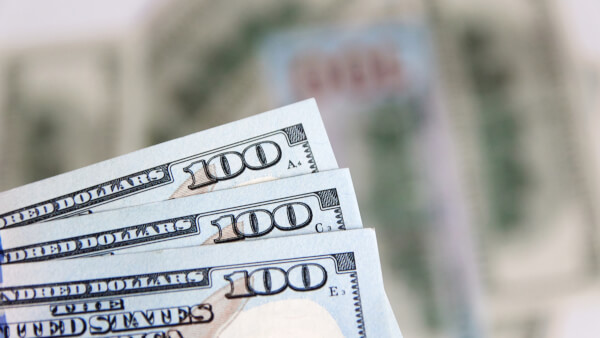Temporary changes to our guaranteed rates for sending money
Send money from your Wise currency balance to make sure your recipient gets the exact amount. Use Wise balances when you send money to make sure your...

The pound finished higher than the previous week versus the euro. Brexit headlines pulled the pound to a weekly low of €1.1071, before positive Brexit rumours pushed sterling to finish the week at €1.1238. Moving into Monday, the pound managed to hold onto its gains ahead of a busy week.
| What do these figures mean? |
|---|
| When measuring the value of a pair of currencies, one set equals 1 unit and the other shows the current equivalent. As the market moves, the amount will vary from minute to minute. For example, it could be written: 1 GBP = 1.13990 EUR Here, £1 is equivalent to approximately €1.14. This specifically measures the pound’s worth against the euro. If the euro amount increases in this pairing, it’s positive for the pound. Or, if you were looking at it the other way around: 1 EUR = 0.87271 GBP In this example, €1 is equivalent to approximately £0.87. This measures the euro’s worth versus the British pound. If the sterling number gets larger, it’s good news for the euro. |
Brexit discussions drove the pound last week, with the pound diving as hopes of a post Brexit transition deal evaporated. Sterling then soared at the end of the week as hopes resurfaced that Chief EU negotiator Michel Barnier could offer the UK a 2-year transition deal.
A transition deal would mean that the UK continues in the EU single market and customs union for a further 2 years after the UK exits the EU in March 2019. The deal is important for the pound because it means that a smooth Brexit is more likely.
| Why is a smooth Brexit good for the pound? |
|---|
| A smoother Brexit would be a scenario in which the economic consequences of leaving the European Union are minimised. This is favourable for the pound because the less the Brexit impact on the economy, the more likely that foreign investors will remain interested in the UK. Foreign investors need sterling to invest in the country and so the more GBP is purchased, the higher the demand and, thus, an increase in the currency’s value. |
Brexit will continue to be in focus as today UK Prime Minister Theresa May travels to Brussels for an emergency talk, to try and break the Brexit deadlock ahead of a key EU summit. May is set to speak with Brexit Secretary David Davis. The pair is then due to hold talks with EU chief negotiator Michel Barnier and several other EU leaders. Any signs of the deadlock lifting will boost sterling. On the contrary, however, should headlines suggest the stalemate could continue, the pound will then drop versus the euro.
Brexit headlines aside, this week also sees some high impact economic data due to be released. The most important will be inflation data on Tuesday, which could be supportive of the Bank of England’s interest rate hike plans. Then, heading through the week, Wednesday sees the release of UK employment data and Thursday see the release of UK retail sales data.
The eurozone produced yet another round of strong data last week. However, the only thing on euro traders’ minds is the European Central Bank (ECB) meeting that’s due in 2 weeks. The ECB has been hinting for some time now that they’ll start winding down their current bond-buying programme. However, investors are still trying to figure out if the ECB will approach this more aggressively or more conservatively.
With the bond-buying program, the ECB purchases corporate bonds like any other investor who would normally have bought them. Because the ECB has already acquired the corporate bonds, the investor can then no longer purchase them, and therefore they will have money to invest elsewhere. This is how the ECB increases liquidity in the economy.
Today’s inflation data could provide a clue as to which approach the ECB will take. The ECB has regularly stated its concerns over sluggish inflation in the eurozone. Should inflation come in below the forecast 1.5%, or 1.1% for core inflation, the euro could stay under pressure.
| Why does poor economic data drag on a country’s currency? |
|---|
| Slowing economic indicators point to a slowing economy. Weak economies have weaker currencies because institutions look to reduce investments in countries where growth prospects are low and then transfer money to countries with higher growth prospects. These institutions sell out of their investment and the local currency, thus increasing supply of the currency and pushing down the money’s worth. So, when a country or region has poor economic news, the value of the currency tends to fall. |
| ----- |
| This publication is provided for general information purposes only and is not intended to cover every aspect of the topics which it deals. It is not intended to amount to advice on which you should rely. You must obtain professional or specialist advice before taking, or refraining from, any action on the basis of the content in this publication. The information in this publication does not constitute legal, tax or other professional advice from TransferWise Limited or its affiliates. Prior results do not guarantee a similar outcome. We make no representations, warranties or guarantees, whether express or implied, that the content is the publication is accurate, complete or up to date. |
*Please see terms of use and product availability for your region or visit Wise fees and pricing for the most up to date pricing and fee information.
This publication is provided for general information purposes and does not constitute legal, tax or other professional advice from Wise Payments Limited or its subsidiaries and its affiliates, and it is not intended as a substitute for obtaining advice from a financial advisor or any other professional.
We make no representations, warranties or guarantees, whether expressed or implied, that the content in the publication is accurate, complete or up to date.
Send money from your Wise currency balance to make sure your recipient gets the exact amount. Use Wise balances when you send money to make sure your...

On 1st August, we removed the fee to hold larger amounts of euros in your Wise account. Why did we charge this fee? Until recently, the European Central Bank...

The pound finished the previous week over 1% higher versus the dollar. The pair closed the week at US$1.2742 and is seen moving higher in early trade on...

The pound–US dollar exchange rate continued to climb higher on Wednesday. Anticipation of a more cautious Fed and Brexit optimism helped lift the pair to a...

The pound ended Thursday at approximately the same level versus the US dollar that it had started. The pound US dollar exchange rate briefly spiked up to a...

Brexit chaos in the UK Conservatives plus an upbeat testimony from the Federal Reserve Chair made for a volatile session for the pound US dollar exchange rate...